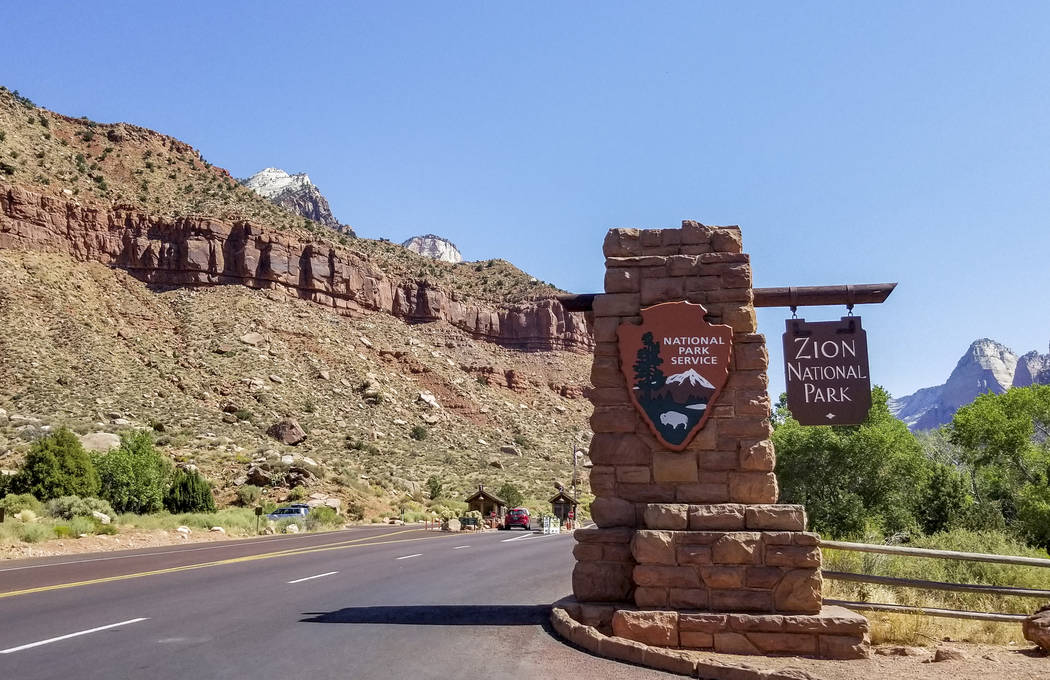Public gets more time to comment on Zion reservation plan
The National Park Service is giving people a few extra days to comment on a plan to require reservations to get into Zion National Park.
The first public comment period for Zion’s conceptual visitor-use plan was set to end Monday, but the park service extended the deadline through Friday because the website for submissions was down for maintenance over the weekend.
The park service is considering a year-round online reservation system for access to Zion and its most popular trails and attractions in response to a massive surge in visitation at the park 160 miles northeast of Las Vegas. Almost 4.3 million people visited the park last year, shattering the record of about 3.6 million set in 2015.
Under one of two “preliminary alternative concepts” unveiled by park officials in July, visitors would be required to get advance reservations to enter the park. The second, more-restrictive plan also would require reservations to access specific trails and sites within the park.
To submit a comment or to get more information on the concepts — and on the park’s broader effort to draft a visitor use management plan for Zion — go online to parkplanning.nps.gov/Zion.
The public will have one more chance to weigh in on efforts to address overcrowding at Zion in the fall of 2018, when the park service is slated to release its completed visitor management plan.
Contact Henry Brean at hbrean@reviewjournal.com or 702-383-0350. Follow @RefriedBrean on Twitter.

















